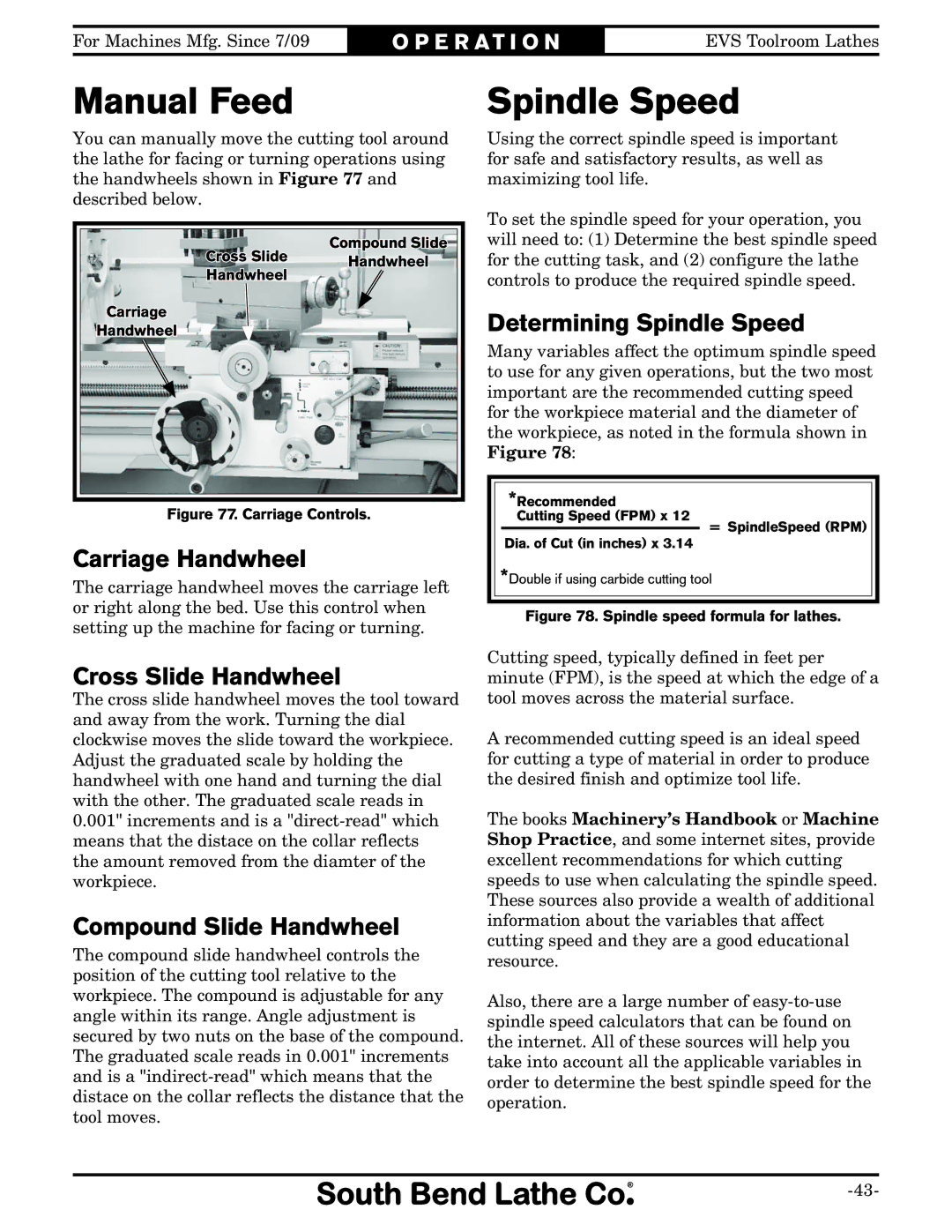
For Machines Mfg. Since 7/09 | O P E R A T I O N | EVS Toolroom Lathes |
Manual Feed
You can manually move the cutting tool around the lathe for facing or turning operations using the handwheels shown in Figure 77 and described below.
Cross Slide | Compound Slide | |
Handwheel | ||
Handwheel | ||
|
Carriage
H![]()
![]() andwheel
andwheel
Figure 77. Carriage Controls.
Carriage Handwheel
The carriage handwheel moves the carriage left or right along the bed. Use this control when setting up the machine for facing or turning.
Cross Slide Handwheel
The cross slide handwheel moves the tool toward and away from the work. Turning the dial clockwise moves the slide toward the workpiece. Adjust the graduated scale by holding the handwheel with one hand and turning the dial with the other. The graduated scale reads in 0.001" increments and is a
Compound Slide Handwheel
The compound slide handwheel controls the position of the cutting tool relative to the workpiece. The compound is adjustable for any angle within its range. Angle adjustment is secured by two nuts on the base of the compound. The graduated scale reads in 0.001" increments and is a
Spindle Speed
Using the correct spindle speed is important for safe and satisfactory results, as well as maximizing tool life.
To set the spindle speed for your operation, you will need to: (1) Determine the best spindle speed for the cutting task, and (2) configure the lathe controls to produce the required spindle speed.
Determining Spindle Speed
Many variables affect the optimum spindle speed to use for any given operations, but the two most important are the recommended cutting speed for the workpiece material and the diameter of the workpiece, as noted in the formula shown in Figure 78:
*Recommended
Cutting Speed (FPM) x 12
= SpindleSpeed (RPM)
Dia. of Cut (in inches) x 3.14
*Double if using carbide cutting tool
Figure 78. Spindle speed formula for lathes.
Cutting speed, typically defined in feet per minute (FPM), is the speed at which the edge of a tool moves across the material surface.
A recommended cutting speed is an ideal speed for cutting a type of material in order to produce the desired finish and optimize tool life.
The books Machinery’s Handbook or Machine Shop Practice, and some internet sites, provide excellent recommendations for which cutting speeds to use when calculating the spindle speed. These sources also provide a wealth of additional information about the variables that affect cutting speed and they are a good educational resource.
Also, there are a large number of
